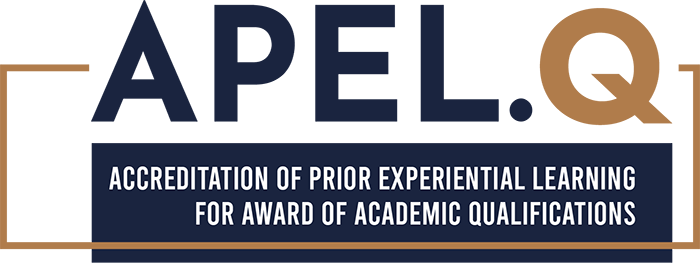APEL.Q is a new concept established in recent years. Nevertheless, due to the practical value it brings back, the program is implemented and recognized worldwide by top-qualified institutes. The procedure aims to help people earn a formal diploma within a short time. From that, it broadens the career pathway and provides an unlimited top-up to higher education. This article will explain the definition of APEL.Q and its target.
Table of Contents
ToggleDefinition of APELQ

APEL.Q is Accreditation of Prior Experiential Learning for Qualifications
Accreditation of Prior Experiential Learning for Qualifications, or APEL.Q, is a systematic process involving finding, documenting, and evaluating prior experiential learning to determine how well a person has met the learning outcomes needed to get into a program of study or get credits for certification.
APEL.Q gives people with work experience without formal academic credentials opportunities to achieve higher education accreditation. In general, APEL.Q’s evaluation will look at what an individual has learned in school and what you have learned on the job.
Currently, APEL.Q can only be used as a requirement to get into higher education programs for the following level of qualification.
- Level 3 (equivalent to Certificate)
- Level 4 (equivalent to Diploma)
- Level 6 (equivalent to Bachelor’s Degree)
- Level 7 (equivalent Master’s Degree).
It is an evaluation of a person’s formal and non-formal learning based on their accumulated experiences (knowledge and skills) that are relevant and specific to the learning outcomes of a course in a program to give credit. The person is judged on how well they can use what they have learned through experience to reach the course learning outcomes.
The ideal candidate for APEL.Q
Years of working experience play a significant role in evaluating whether an individual is suitable for the certificate. Besides, the program is mainly designed for people with long working experience who have fewer opportunities to attend a full-time schedule. Three types of people below are recommended to take an APELQ.
- Immigrants in a country that did not recognize the education certificate an individual had earned before. These individuals may have gained high-qualified degrees in their home country, but they may not be able to prove it here. Instead of retaking a 4-year program to get a qualified degree in the living region, an immigrant can submit their portfolio and do a capstone project. When finishing those requirements, individuals can achieve a full-time degree with only 6 months of studying.
- People who work part-time, who usually have less time for training and development, can get the most out of an APELQ learning program. These people are too busy to commit to a full-time schedule. However, they have working experiences aligned with the learning concept. From that, an individual can still maintain the job while getting a degree in a short period.
- Self-employed people wouldn’t want to repeat what they already know about running their business. These individuals have years of work before becoming self-employed. Besides, they are too busy with their companies to join a full-time program. With APEL.Q certified, self-employment will be able to earn a degree and will not be in a dilemma of scarifying job vs education.
APEL.Q is predicted to develop more worldwide in the future because of its various benefits. However, it limits specific learners due to the lack of working years. In brief, the APEL.Q diploma can be considered equivalent to a full-time degree while maximizing the time and tuition fee for students. Having a formal diploma broadens career pathways and increases employment opportunities.
Not all universities have a permit to be accredited APEL.Q certified due to its cohesion and transparency. Paris-U is proud to be one of the worldwide organizations recognized by APEL.Q. The institute has been helping a thousand students to archive formal degrees via programs. Thus, you can join the Paris-U community to learn more about the procedure.
Read more at APELQ




